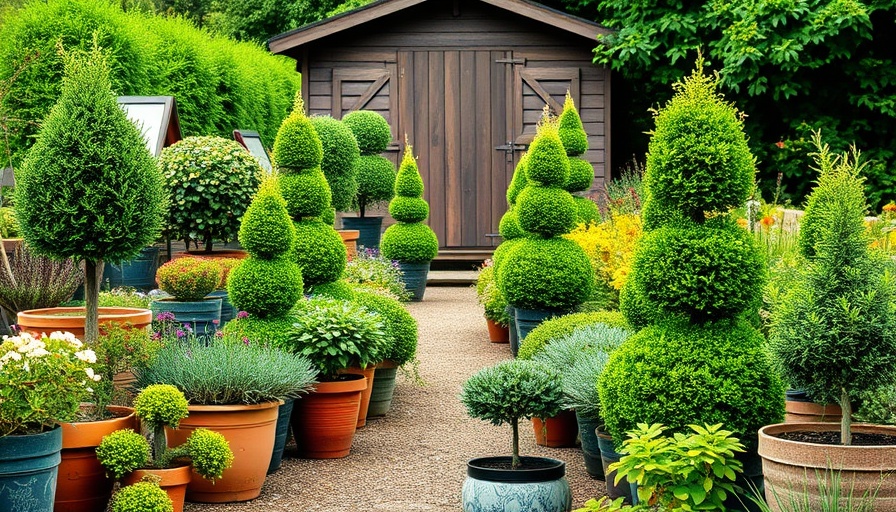
Understanding the Importance of Garden Screening Plants
Garden screening plants serve as a vital tool for homeowners looking to enhance their outdoor spaces. These plants not only provide privacy but also contribute to the aesthetic appeal of gardens. Many homeowners may find themselves navigating the challenges of increasingly crowded neighborhoods or new developments, leading to a need for effective screening solutions. According to Guy Watts from Architectural Plants, around 90% of their customers are in search of these specific plants. As the demand grows, it’s essential to understand how to strategically choose and utilize these plants for maximum privacy and beauty.
Advantages of Layering Garden Plants
Guy emphasizes the importance of layering when it comes to garden screening. Instead of relying solely on a tall hedge to create boundaries, a more dynamic approach involves mixing various plants at different heights. This layering not only offers a more visually appealing result but also allows homeowners a wider selection of plant types – each contributing to the garden's unique style.
Deciding What You Need to Screen
Before diving into specific plants, consider the aspects of your property that require screening. Are you looking to block unsightly views of commercial buildings? Create a secluded retreat for your family around a pool? Or enhance the privacy of ground-level windows? Knowing the specific areas you want to shield can greatly influence your choice of plants and their placement. For instance, a well-placed evergreen can provide year-round coverage, while deciduous plants can allow for seasonal light.
Planting Position Matters
Guy also notes the significance of planting location. It is advisable to position screening plants a few feet away from fences or walls to allow for proper maintenance access. This also encourages plants to grow in a healthier way, facilitating better air circulation and light exposure. Furthermore, understanding the principle of sight lines can help determine the most effective placement of your plants. If you interrupt a sight line effectively, you can significantly enhance your privacy with less effort.
Creative Layering Techniques for Privacy
Taking advantage of smaller elements, such as pots and planters, can help create initial layers of privacy. These smaller plants not only soften hard surfaces closer to the house but also introduce seasonal colors and textures throughout the year, making your space feel alive. As you transition to medium-height plants and finally to larger trees, the layered effect will draw the eye and provide a natural feel to the surrounding area.
Additional Screening Alternatives
And if you feel creative, consider incorporating vertical elements such as trellises or decorative fences intertwined with climbing plants. These structures can enhance the visual interest of your garden screening efforts while maximizing privacy. Innovative solutions can include utilizing fragrant plants to fill the air with pleasant scents or flowering species that add vibrancy while still serving the purpose of privacy.
Future Trends in Garden Screening Solutions
As urban living continues to evolve, homeowners are likely to seek more sophisticated garden solutions. Trends may begin to incorporate technology into these designs, such as smart irrigation systems to maintain screening plants effortlessly. Additionally, eco-friendly practices will likely become more mainstream, encouraging the use of native plants that require less maintenance and resources.
Conclusion: Embrace Your Outdoor Space with Confidence
Choosing the right garden screening plants is not merely about aesthetics; it contributes to creating a sanctuary right at home. As you refine your approach to gardening and landscaping, remember that layering, thoughtful placement, and incorporating a variety of plant types will be the keys to a private and beautiful outdoor environment.
For more insights into flower selection, gardening techniques, or design tips, consider reaching out to experts like Guy Watts or reputable garden centers in your area.
 Add Row
Add Row  Add
Add 




Write A Comment